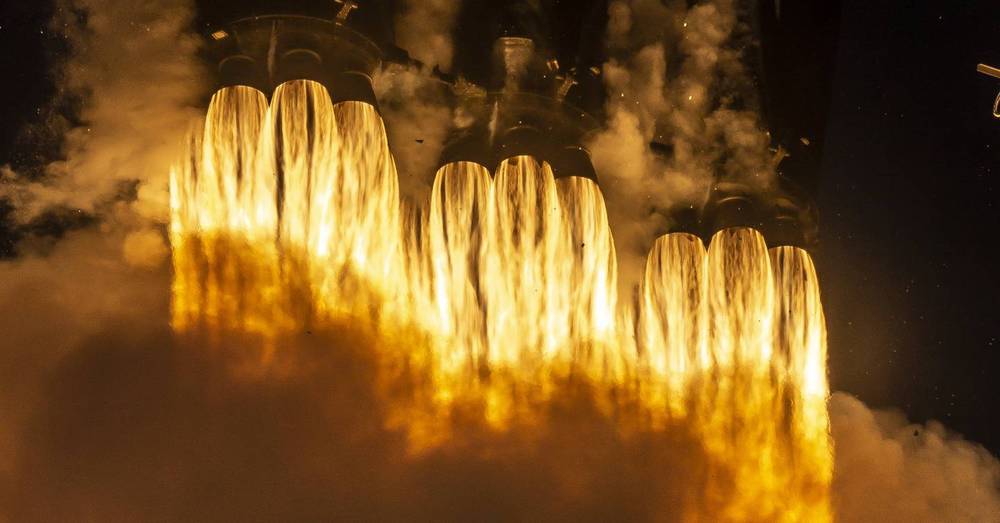The reusability is a key aspect, as Musk has said each engine needs to be capable of flying up to 1,000 times to support the ambitious operations of Starship. That’s a major challenge; the most re-used engines in space exploration history were the main engines on each Space Shuttle, which flew up to only a few dozen times each. “It’s quite ambitious,” says Dodd. “I don’t know if 1,000 flights is necessarily going to be achievable in the near future. If it lives up to its potential, maybe 1,000 is within the realm of possibility one day.”
SpaceX’s existing engine is called Merlin, which is used on its operational Falcon 9 and Falcon Heavy rockets, but Raptor heralds a significant improvement. One is that it has double the thrust of its predecessor thanks to a much higher pressure, 380,000 pounds of thrust at sea level versus 190,000 pounds, despite being a similar size.
